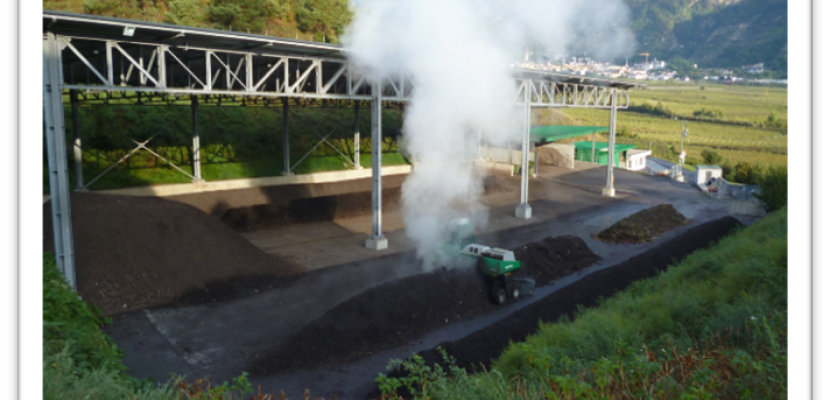
From farm composting to robust composting plants in rural areas

About this good practice
In the 1980s, Bolzano sought to address waste issues by building landfills and pre-treating municipal waste. Three central composting plants were established to save landfill space and produce compost for agriculture. However, the management plans failed, leading to plant modifications or closures.
The key lesson learned was that public administrations should use only proven, robust waste treatment systems. Additionally, a mix of centralised and decentralised plants is essential for organic waste management. In rural areas, home composting, farm composting, and regional plants should work together to handle organic waste. All plants require authorisation, covering both administrative (location, waste codes) and technical aspects (treatment type, process and control guidelines), as outlined in the waste management plan.
These principles were incorporated into the 1999 update of the waste management plan, which also introduced nationwide organic waste collection and expanded farm composting into regional plants. Over the last 20 years, many farm composting facilities have evolved into provincial plants, using open windrow composting, with or without forced aeration. Today, the compost produced is of high quality and is widely used in agriculture as a soil conditioner.
Resources needed
All plants are publicly financed, with no individual benefiting economically from waste disposal. Funding comes from province and municipalities. The plants, owned by municipalities or districts, were initially co-financed at 90%, later reduced to 50%. Rest of the costs are borne by the owners.
Evidence of success
The knowledge gained from the beginnings of biowaste management led to a consistent continuation of the implementation of the waste management plans. The additional construction of a central anaerobic digestion plant made it possible to extend biowaste collection to urban centres, thus reducing the partial overloading of the composting plants. Thanks to this mix of plants, South Tyrol is now able to treat the whole bio-waste and the majority of green waste itself (60.000 tons per year).
Potential for learning or transfer
The experience that the Province of Bolzano has gained in the management of organic waste over a period of more than 30 years can be helpful for all authorities involved in the management of municipal waste.
It has been proven that a stepwise sensitisation of the population to the introduction of organic waste collection and the use of proven and robust recycling and treatment systems leads to sustainable organic waste management.
Further information
Good practice owner
You can contact the good practice owner below for more detailed information.
Agenzia provinciale per l’ambiente e la tutela del clima

